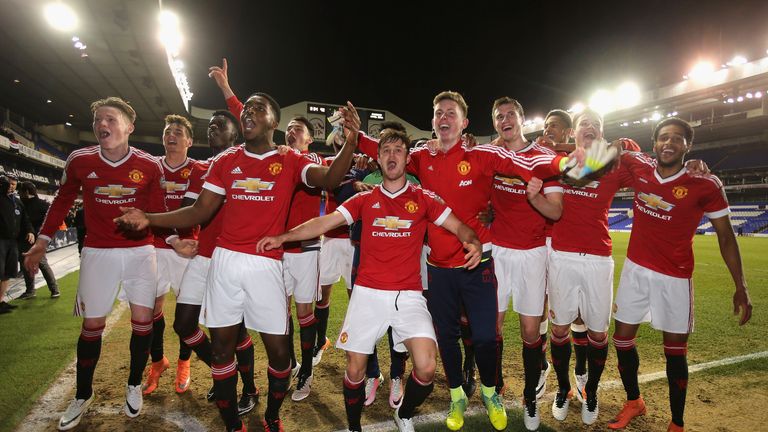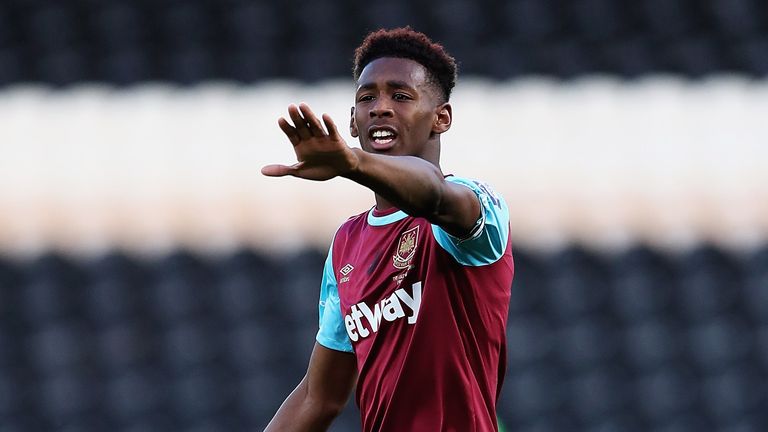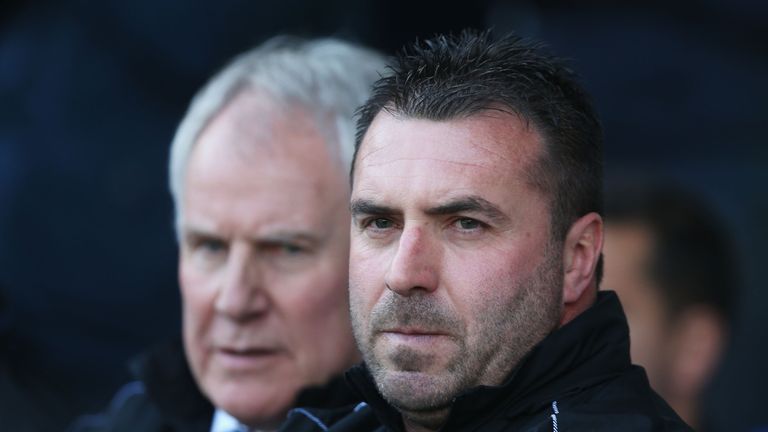Premier League 2: New youth competition explained
Wednesday 27 July 2016 07:09, UK
The Premier League has announced the introduction of Premier League 2 for the 2016/17 season - but what is it and how will it work? Here we answer the key questions on the new competition...
Premier League 2 will replace the current U21 league, with the age range extended to incorporate U23s.
However, each team can field a goalkeeper over the age limit of 23 and up to three 'over-age' outfield players can take part in every match.
Players must have been born after January 1, 1993 to be eligible, though.
Which teams will be in Premier League 2?
There will be two divisions - Premier League 2, Division 1 and Premier League 2, Division 2 - with 12 teams in each.
The 24 clubs involved each applied for 'Category One' status in the elite player performance lan and are made up of 15 Premier League sides and nine clubs from the Championship.
Teams in Division 1: Arsenal, Chelsea, Derby County, Everton, Leicester City, Liverpool, Manchester City, Manchester United, Reading, Southampton, Sunderland, Tottenham Hotspur
Teams in Division 2: Aston Villa, Blackburn Rovers, Brighton & Hove Albion, Fulham, Middlesbrough, Newcastle United, Norwich City, Swansea City, Stoke City, West Bromwich Albion, West Ham United, Wolverhampton Wanderers
What is the format of Premier League 2?
Within their respective division, clubs play each other once at home and once away.
In Division 1, the team which finishes top are champions, with the bottom two teams relegated to Division 2.
The winners of Division 2 are automatically promoted to Division 1, while second, third, fourth and fifth go into a play-off for promotion. There is no relegation from Division 2.
Where will the games be played?
Each club must host at least three league matches at their main stadium during the course of the season. Up to three other home matches may be staged at the clubs' training grounds or academy venues.
In the Division 2 play-offs, the semi-finals will take place at the main stadiums of the clubs which finish second and third, while the final will be held at the home ground of the team who finished highest in the league.
Who are the favourites to win it?
Manchester United have won the Premier League's U21 competition in three of the past four seasons. Chelsea denied them the title in 2013/14 and the Blues, who have won the FA Youth Cup for the past three seasons and the 2015 and 2016 UEFA Youth League, will be strong contenders for Premier League 2.
Why has it been introduced?
Premier League 2 has been designed to boost the number of home grown players progressing into the first-team squad of the clubs involved. The idea is to give the young players at those clubs a matchday experience closer to the one they would find in the first team.
"We are always trying to develop more and better home grown players, with a record 67 making their debut last season," said Premier League executive chairman Richard Scudamore. "The hardest part for players is the transition period from development football to the first team. Premier League 2 is structured to give players the optimum opportunity to get to the Premier League through more competitive and meaningful game time.
"The average age for a player to make their first team debuts is between 22 and 23. Therefore it is right that we extend the age range to Under-23 to give greater opportunities for players to make it."
What has been the reaction of the clubs?
At the launch, David Unsworth, who is a coach at Everton, said: "We certainly feel it's a step in the right direction. The Premier League are listening to a lot of academy coaches. The aim of the age shift is that we think there are going to be more older players and, on average, older squads playing. The best way to develop players is have them playing at a level that will test them every week."
Manchester United's academy boss, Nicky Butt, is also a supporter. "It's fantastic to be involved in this new competition," he said. "Here at United we understand the importance of our academy, it's something that the club is built upon and in the DNA of Manchester United."
Will this be the only competition for young players?
No. In addition to Premier League 2, clubs will also have opportunity to compete in the Premier League Cup, the Premier League International Cup and, for the first time, the EFL Trophy.
The Premier League International Cup has been expanded to 24 clubs - 12 domestic clubs and 12 international clubs - and the Premier League Cup (formerly the U21 Premier League Cup) has taken on a 32-team Champions League format.






